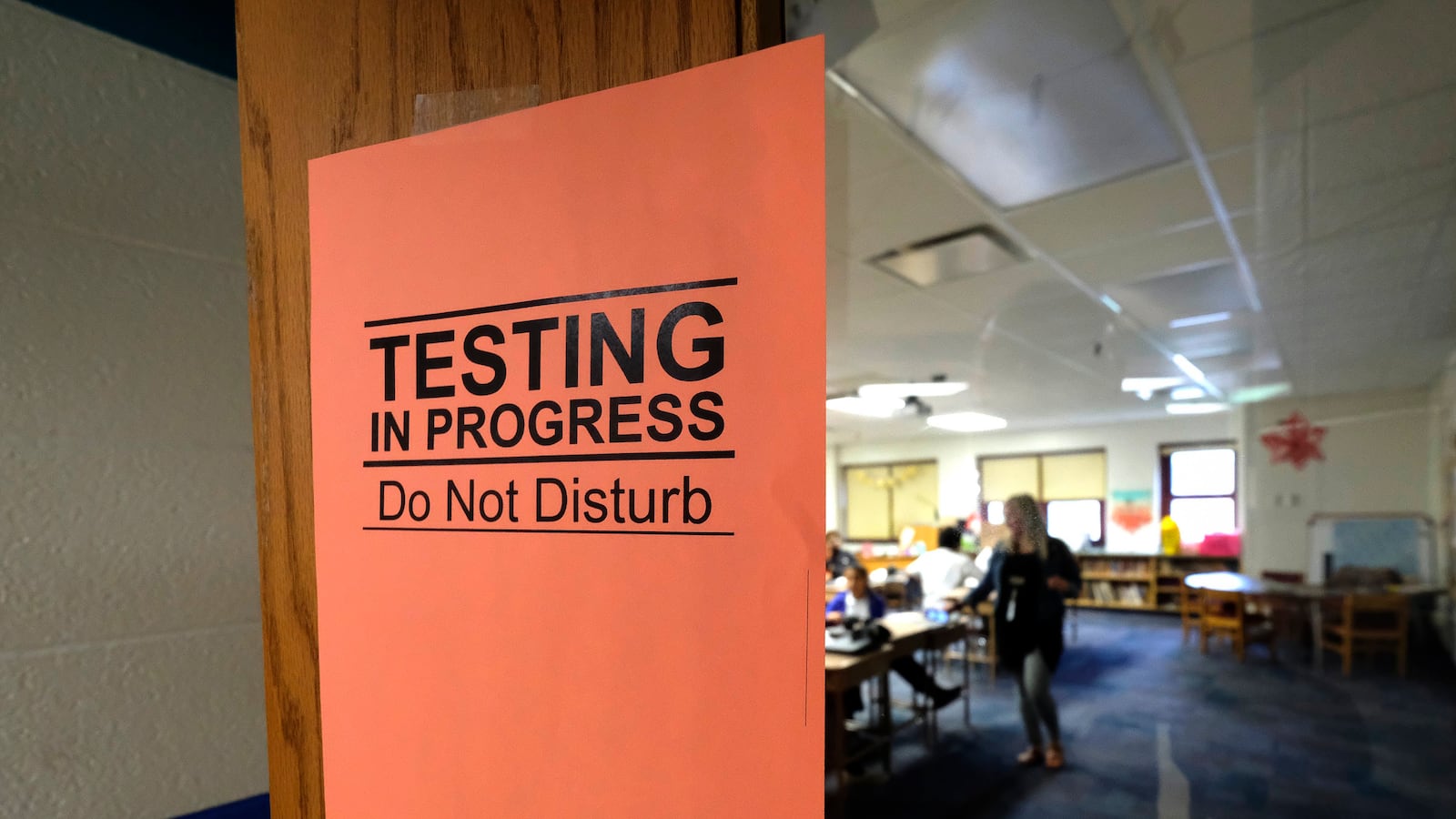Now that New Jersey is planning to reduce the number of tests that high school students take, advocates are beginning to shift their focus to the new graduation requirements that could become the replacement.
The state Board of Education voted this month to eliminate math and English state exams for 10th graders after the 2019-2020 school year. Changes would start with the Class of 2023, making this year’s sophomores the last to be tested.
The board also voted to have 11th-graders either pass a new test to graduate from high school or successfully submit a portfolio for review — and what those requirements could look like is raising fears among advocates who pressed the state to dial back testing.
Nearly half of New Jersey graduates last year replaced test scores at least partially with alternatives, including collections of their work known as portfolios. Under the state board’s plan, how those portfolios are evaluated would change, but it’s not clear in what ways.
“What the portfolio option is going to include is unclear. Where they’re going to set the cut score on this new 11th-grade test is unclear,” Stan Karp of the Education Law Center told Newark parents and advocates during a presentation last weekend. “This proposal, while it’s better than adding more tests, you really don’t know the impact of what these rules are going to be on our kids.”
Karp directs the Secondary Education Reform Project at the Education Law Center, one of several New Jersey groups to successfully push back against the last round of high school testing rules. In 2016, then-Gov. Chris Christie encouraged the state board to stop allowing students to use alternatives to testing to demonstrate their readiness to graduate from high school. A lawsuit that year led to continuing protections for students who did not pass the state’s exit exam.
In 2017, nearly two-thirds of Newark Public Schools graduates used alternate assessments to graduate.
It is uncertain if the new 11th-grade exam would be more like the proficiency exam that New Jersey required before adopting new tests in 2016, or more like the current exam, a New Jersey-specific version of the national exam known as PARCC. Students passed the state exam test at a higher rate than they do the current test.
“We won’t know the answers to those questions for at least a couple of years,” said Karp, who warned that the choice could make the difference between graduating and dropping out for thousands of high-need students.
“They don’t help the kids that pass and it hurts the kids that don’t,” he said. “We don’t want to test and punish. That’s what we have.”
Christie’s push for tougher tests and more stringent requirements reflected the argument, prevalent in statehouses at the time, that existing exams did not ask enough of students. Some advocacy groups in New Jersey have continued to bang that drum: JerseyCAN and Better Education for Kids last week released a statement in response to the state board’s decision calling on the legislature to “ensure our state maintains meaningful graduation requirements.”
But Karp and other advocates say there is a glaring misalignment between what the tests measure and what students are learning inside the classroom. Failing scores don’t necessarily mean that students lack the skills they need, said Lyndon Brown, a longtime education advocate in Newark.
“We have kids who sit in a class all year with different substitutes every day in Algebra II and basic courses that they need. We have kids who supposed to have IEP accommodations for longer test time or personal aide and don’t have those accommodations being met,” Brown said. “It is unfair to those kids when they are unproperly prepared.”
When Audryea Jackson saw that her students struggled to read and write well during her time as an English teacher at Barringer High School in 2016, she questioned whether trying to get them prepared to produce an essay for a state exam would help them.
Jackson began advocating for students to opt out of testing and for the state to get rid of the PARCC exam. It’s not that the students were not interested in learning how to read and write properly, she says, but that they needed a different approach to help them be able to do so.
“Assessment needs to be revisited. In 2019, I don’t think the state assessment is the appropriate way to assess our children,” said Jackson, who favors a portfolio assessment for all students.
“Students need to be able to utilize math, reading, and writing but the focus should be on their gifts, talents, and what they want to accomplish in the future,” she said. “Education and assessment need to be built on that.”
The proposed regulations open for 60 days for public comment from Dec. 2 until Jan. 31, 2020. State board members meet to make a final vote in early February.

